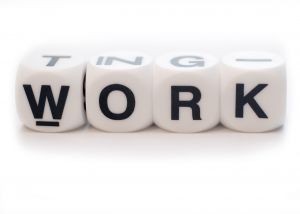The payout of Social Security Disability Insurance (SSDI) benefits have become a highly politicized issue in recent years. There has been a growing (albeit erroneous) consensus among some politicians that SSDI benefits are far too easy to obtain and too many people are avoiding viable work options because it’s “easier to stay home and collect a check.” 
One need only look at the rigorous eligibility requirements and application process to see why that’s not true. But if you’re looking for more evidence, turn your eye to the latest research by the Center on Budget and Policy Priorities. The study authors looked at the various programs over the last 25 years imposed by Congress to push SSDI recipients to return to work.
These include the “Ticket to Work” program in 1999 that provided vocational rehabilitation for recipients to the most recent Benefit Offset National Demonstration (BOND) program that reduces a person’s disability benefits by $1 for every $2 they earn (making benefits $0 when they reach Substantial Gainful Employment Activity – SGA). Unsurprisingly, none of these efforts have had much impact on the government’s bottom line or the number of recipients.
Why? Because despite the rhetoric that the SSDI program is too expensive and has become bogged down with waste and corruption, the reality is people who are receiving SSDI have very limited work capacities. That is: They are not committing fraud. They are not taking more than their fair share. They are not able to work and simply refusing to do so. They are disabled – and they had to go through a rigorous vetting process to prove it. Even those who may have limited work capacity aren’t likely to return to a situation where they can do so in a way that will allow them to be self-supporting in the long-term. Continue reading
 The claimant, who chose to represent himself in the process, decided to apply for Supplemental Security Income (SSI) benefits to supplement his workers’ compensation benefits. He fully disclosed his workers’ compensation benefits to the United States Social Security Administration (SSA), so there was nothing improper about applying for this benefits. However, after applying, he was quickly denied for Social Security disability benefits. Continue reading
The claimant, who chose to represent himself in the process, decided to apply for Supplemental Security Income (SSI) benefits to supplement his workers’ compensation benefits. He fully disclosed his workers’ compensation benefits to the United States Social Security Administration (SSA), so there was nothing improper about applying for this benefits. However, after applying, he was quickly denied for Social Security disability benefits. Continue reading Massachusetts Social Security Disability Lawyers Blog
Massachusetts Social Security Disability Lawyers Blog








